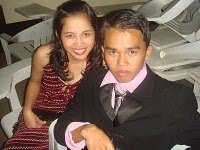ASSESSMENT
- Develop standards-aligned, measurable, ambitious big goals that will increase student opportunities for achievement; assess and track performance against these goals.
- Measure student achievement of, and progress toward, the learning objectives and big goals with formative and summative assessment tools.
- Provide ongoing and timely feedback to students on their progress towards meeting big goals by frequently checking for understanding and listening.
- Use data to reflect on effectiveness of lessons and student achievement progress in order to improve instruction and personal practice.
- Use data to update each student’s Individual Learning Plan.
LEARNING ENVIRONMENT
- Create a focused environment of fairness and respect that encourages students to take risks and strive to reach goals.
- Communicate and enforce high expectations and standards for behavior and academic performance, aligned with the LHA School Culture Guide and Responsive Classroom, to create a strong culture of achievement and respect.
- Establish, model, practice, and reinforce age-appropriate rules and logical consequences; create and consistently use individual behavioral management plans, as needed.
- Implement classroom procedures, systems, and routines that provide structure for students and maximize instructional time.
FAMILY and COMMUNITY RELATIONS
- Communicate respectfully and thoughtfully with parent/guardians remaining sensitive to different families’ cultures, values and needs.
- Initiate and maintain timely communication with all parents/guardians (through daily/weekly folders, notes home, weekly newsletters, phone calls, in-person meetings, conferences, report cards) concerning student progress and to provide a clear picture of the curriculum and high expectations.
- Work collaboratively with parents/guardians, families, and other members of the community to involve them in academic activities and to support the success of a diverse student population and to bring in volunteers and additional resources.
PROFESSIONALISM
- Collaborate with colleagues (grade level and school-wide meetings, professional development days, the professional development institute) to continuously improve personal practice, classroom instruction, assessment, and student achievement, as well as the overall goals and mission of the school and the network.
- Access meaningful learning experiences (current theory, research, and developments in relevant academic disciplines, professional development opportunities, and ideas from colleagues and supervisors) and exercises judgment in accepting findings as valid for application in classroom practice and teacher improvement.
- Reflect critically upon teaching experience; identify areas for further professional development as part of a professional development plan that is linked to grade level, school, and network goals; access meaningful learning experiences; and listen thoughtfully to other viewpoints and respond constructively to suggestions and criticisms.
- Use feedback to update Individual Professional Development Plan.
- Fulfill all outlined and related functions professionally, timely and thoroughly.
The study found that previous achievment levels and student intelligence are excellent predictors of achievement; that teacher experience is occasionally a factor in student achievement; and that the effect of teacher and school variables is larger for black students than for white students. The study concludes that school level variables explain virtually none of the variation in student achievement and that it is unlikely that such factors as administrator intensity, teacher and pupil attendance rates, and resource allocation will have much impact on student achievement. (JEH)

No comments:
Post a Comment